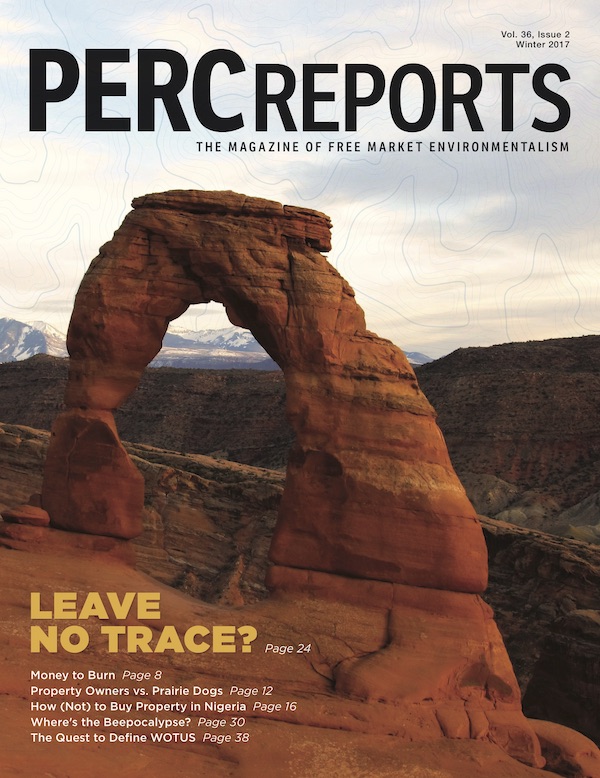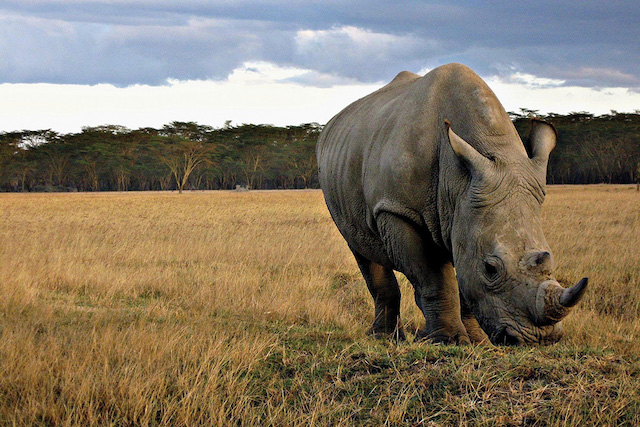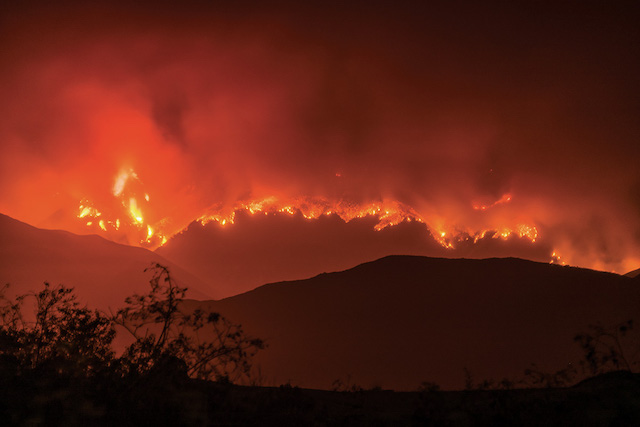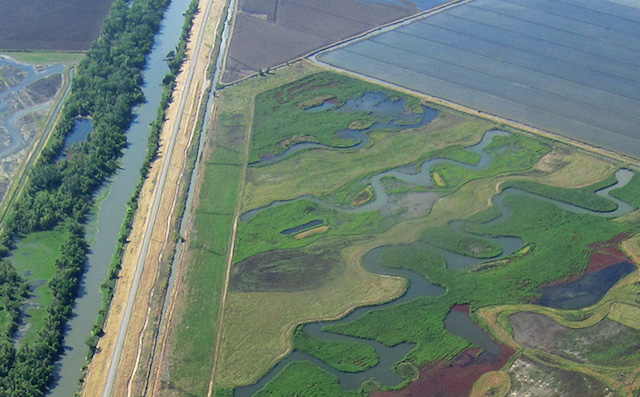
PERC Reports: Winter 2017
What if federal regulations designed to protect endangered species actually hindered state-led efforts to enhance their recovery?
Read more

What if federal regulations designed to protect endangered species actually hindered state-led efforts to enhance their recovery?
Read more


How DNA indexing and blockchain technologies could help conserve rhinos.
Read more
While formal land rights are on the rise in sub-Saharan Africa, customary rights cannot be ignored.
Read more

The federal government should embrace state experimentation to protect the Utah prairie dog and other endangered species.
Read more

It’s time for outdoor recreationists to put their money where their footprints are.
Read more
A decade after colony collapse disorder began, pollination entrepreneurs have staved off the beepocalypse.
Read more